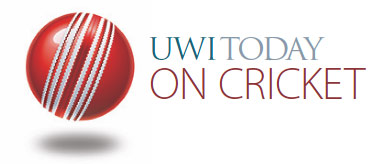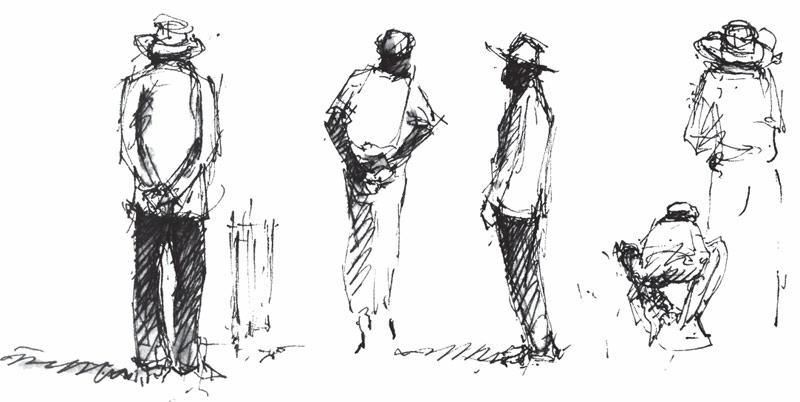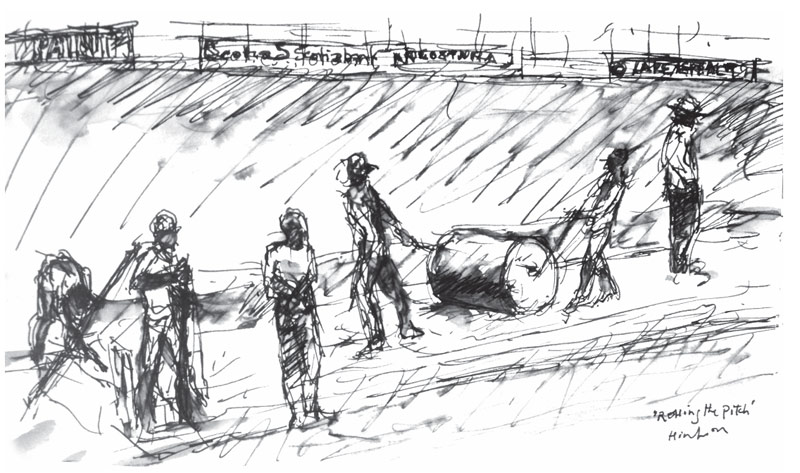 |
 |
 |
|
March 2015 |
It is possible that part of the reason why the exploits of the West Indies cricket team attract so much passion, including exasperation, is the unarticulated sense of ownership felt by many. This of course does not sit well with the corporate form of private boards or lately, franchises, naturally keen to cling to the most expansive definition of proprietorial rights that they can assemble. In ordinary discourse, this was conveyed as a formula which suggested that the West Indies Cricket Board owned the players, lock, stock and barrel, and moreover that in its decision-making it did not need to take public sentiment into account. Happily, in relation to the first interface, that between the Board and the players, the position has been moderated by the result of legal challenges recognising the distinction between the player as an individual possessing his or her own intellectual property rights on the one hand, and the player as a member of the West Indies team with certain obligations in that regard. But even as the interface between the Board and the player has become a little clearer, notwithstanding real or imagined grievances about team selection, the second one, that between the Board and the public, has become murkier. Now, a decision of the Supreme Court of India, establishing guidelines for the private control of a public good, opens up some far-reaching implications in this area.
The Court examined the activities performed by the BCCI and for a moment seemed to be disposed to rely on learning from American jurisprudence that suggested that if the functions of a private corporation are of public importance and closely related to governmental functions, it would be a relevant factor in classifying the corporation as an instrument or agency of the government. If the matter had been decided on this ground alone, it would perhaps have less relevance for us, since there is no West Indian State and hence presumably no State to which the actions of the WICB could be attributed. Fortunately, the Court took a different path and chose to establish its supervisory role on other grounds, namely, whether or not the BCCI was a State actor, it nevertheless discharged several important public functions, and as such was amenable to legal control under Article 226 of the Constitution of India, a provision which gives the Indian High Courts certain wide powers. The enunciation by the Court of the public functions performed by the BCCI is of direct relevance to us, as it mirrors the local situation. As the court noticed, the BCCI has a “complete sway” over the game of cricket in India, regulating and controlling the game to the exclusion of all others. It formulates rules, regulations, norms and standards over all aspects of the game. It selects the national team and the umpires, and exercises the power of disqualifying players, which could end the sporting career of a person. In addition, some of what it is able to do, such as framing pension schemes or coaching and training arrangements, negotiating and selling broadcast and telecast rights, and collecting admission fees to playing venues are undertaken with the tacit concurrence of governmental authorities. Moreover, the State has not opted to dilute the BCCI’s monopoly, but on the contrary has allowed it to select the national team, and to cap it all, the State confers the highest civilian awards to those players who distinguish themselves in the international arena. The Court could have added that the playing of the national anthem is a feature of certain cricket matches, and that important and cherished national symbols are displayed on the attire of the players. In any event, the Court concluded, in words that can surely apply to us: “any organization or entity that has such pervasive control over the game and its affairs as can make dreams end up in smoke or come true cannot be said to be undertaking any private activity. The functions of the Board are clearly public functions which … remain in the nature of public functions, no matter discharged by a society registered under the Registration of Societies Act. Suffice it to say that if the government not only allows an autonomous/private body to discharge functions which it could in law take over or regulate but even lends its assistance to such a non-government body to undertake such functions which by their very nature are public functions, it cannot be said that the functions are not public functions or that the entity discharging the same is not answerable on the standards generally applicable to judicial review of State action.” The logic of this conclusion pervaded a separate question with which the case was concerned, namely the validity of an amendment to one of the BCCI’s own rules. As will become apparent, this too has some implications at the local level. The original rule stated that “no administrators shall have, directly or indirectly, any commercial interest in the matches or events conducted by the Board,” but this was later amended by the addition of the following words “excluding events like the IPL or Champions League Twenty 20.” The permissive import of this amendment was not lost on the Court who said that the aim was to allow the creation of commercial interests in events organized by the Board. The court conceded that the Board had the authority to make the rule and the amendment, but that was not the issue. The validity of the amendment had to be examined, the Court insisted, in relation to its congruence with ‘Public Policy’. Here, the importance of the game in the national context was uppermost in the Court’s calculation. It was an important instrument of national consolidation; in the words of the Court, “a great unifying force.” It was not therefore something to be trifled with, but anyone entrusted with its affairs must be able to withstand the highest level of scrutiny. This, the Court underlined, is for the public good and in the public interest.
While not suggesting that the BCCI administrators were guilty of fraud, the Court reminded the BCCI that because it was a very important institution discharging important public functions, the demands of institutional integrity were heavy and needed to be “met suitably in the larger public interest.” Because the public interest was at stake, “what was against public good and public interest cannot be held to be consistent with Public Policy.” Seen in this light, “any rule, contract or arrangement that actually defeats or tends to defeat the high ideals of fairness and objectivity in the discharge of public functions no matter by a private non-governmental body will be opposed to public policy.” Thus, the rule under question, to the extent that “it permits, protects and even perpetuates situations where the administrators can have commercial interests in breach of conflict with the duty they owe to the BCCI or to the people at large must be held to be against public policy, hence, illegal.” These large questions of public good, public interest, and public duty do figure in general discourse about West Indian cricket but not in the clear-cut manner that the Supreme Court of India has pronounced. The Woolf Report, commissioned by the ICC and published in 2012, tended to ignore these questions. Rather, it looked for a device further to bury them, by suggesting that if the ICC committed itself to good governance, then it would be better able to withstand public scrutiny. Whether and if an avenue involving litigation will be found to bring the ideas ventilated in the Indian judgment to bear on the local situation remains to be seen. Dr. Kusha Haraksingh is the Founding Dean of Law, at UWI, St. Augustine. He appeared as attorney for the West Indies Players’ Association in their several successful arbitration proceedings. |



 The Indian case, which was reported on January 22, 2015, arose partly out of match-fixing and gambling allegations, but in the course of arriving at its decision, the Court had to decide whether it had supervisory powers over the decisions of the Board of Control for Cricket in India (BCCI), a private entity established under the Registration of Societies Act. One argument to ground those powers would have been easily established if it could be said that the BCCI’s actions were those of the Indian State as defined in Article 12 of the Constitution of India.
The Indian case, which was reported on January 22, 2015, arose partly out of match-fixing and gambling allegations, but in the course of arriving at its decision, the Court had to decide whether it had supervisory powers over the decisions of the Board of Control for Cricket in India (BCCI), a private entity established under the Registration of Societies Act. One argument to ground those powers would have been easily established if it could be said that the BCCI’s actions were those of the Indian State as defined in Article 12 of the Constitution of India.  As the Court stated, “All told whatever be the format of the game and whatever be the commercial angles to it, the game is what it is, only if it is played in its pristine form free from any sporting fraud.”
As the Court stated, “All told whatever be the format of the game and whatever be the commercial angles to it, the game is what it is, only if it is played in its pristine form free from any sporting fraud.”